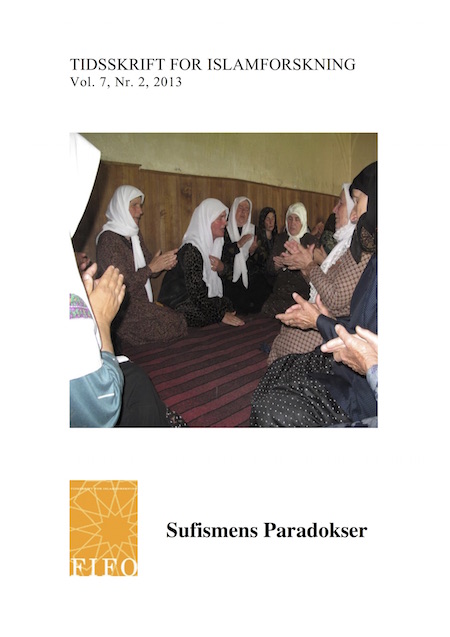Ufuldkommenhedens etik: Om at realisere sufismen som dydsetik i det post-sovjetiske Usbekistan
DOI:
https://doi.org/10.7146/tifo.v7i2.25317Keywords:
sufisme, Uzbekistan, Naqshbandiyya, etik,Abstract
With a point of departure in fieldwork conducted among Muslims connected with – or inspired by – the Naqshbandiyya Sufi tariqa in Post-Soviet Uzbekistan, this paper focuses on the paradoxes involved in realizing Sufism as virtue ethics. Through a continuous work on the self the Naqshbandis seek to approach God as well as to realize Sufism as this-worldly virtue ethics. What stands out as central in their experience of this process, however, is neither the encounter with the Divine, nor their own ethical perfection. Rather, it is insistent feelings of vulnerability, doubt and imperfection and a sense of being further and further away from the ideals of Sufism the more they seek them or seek to realize them. The paper will focus on these paradoxes – paradoxes which may be general to Sufism as such, or which at least lie as a potential in Sufism as well as other religious traditions which seek to realize transcendent ideals in an imperfect world, but which are accentuated in a context like the post-Soviet one: Here they are tied to the historical experience of loss related with the Soviet years as well as the social upheavals following the breaking up of the Soviet Union.Downloads
Published
2017-02-05
How to Cite
Louw, M. (2017). Ufuldkommenhedens etik: Om at realisere sufismen som dydsetik i det post-sovjetiske Usbekistan. Scandinavian Journal of Islamic Studies, 7(2), 8–38. https://doi.org/10.7146/tifo.v7i2.25317
Issue
Section
Articles: Thematic section
License
Scandinavian Journal of Islamic Studies publish under creative commons license BY-NC-SA.





